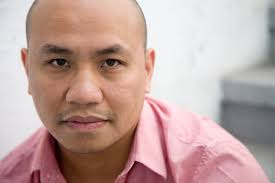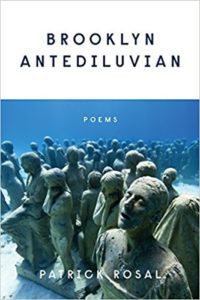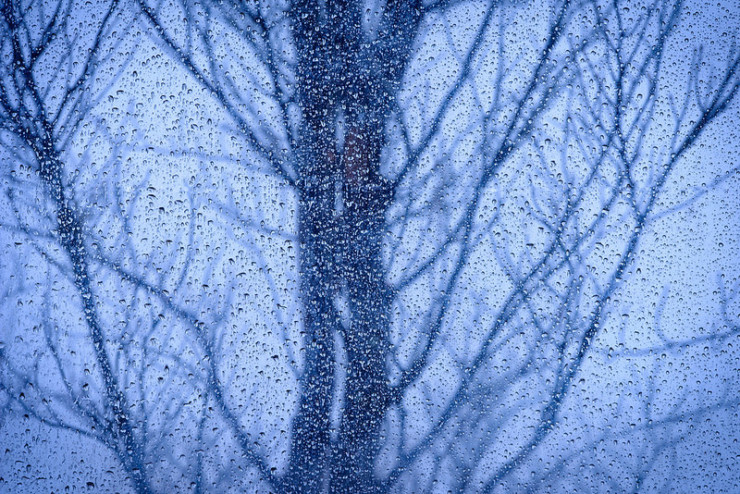It’s a singular recognition to have your poetry collection named as the “most outstanding book of poetry published in the United States in the previous year,” but that’s what happened with Brooklyn Antediluvian by poet Patrick Rosal. The Academy of American Poets awarded the collection the Lenore Marshall Prize, which carries with it $25,000 and a special printing for all academy members. Not to mention the publicity.
Rosal, an associate professor of creative writing at Rutgers University-Camden, has three previous poetry collections: Uprock Headspin Scramble and Dive (2003); My American Kundiman (2006); and Boneshepherds (2011). His poems have been published in a wide array of literary magazines and journals, including Tin House, Poetry, New England Review, American Poetry Review, Grantland, and The Best American Poetry. He became a Fulbright Award recipient in 2009, and his poetry has received numerous awards and recognitions. He’s served on the faculty of the Kundiman summer retreat for Asian-American writers; two poems in Brooklyn Antediluvian include the word “Kundiman” in their titles. He lives in Philadelphia.

Patrick Rosal
The collection comprises 24 poems, which tend to the long side. The title poem, in fact, is 16 pages, and is a standout in an outstanding collection. It is a coming-of-age poem, a narrative poem, a story poem, a meditation, an identity poem, a family history, and likely several other things. It ends speculatively, suggesting that it doesn’t really end at all.
Geography and identity have strong roles in this collection, not unexpectedly given the poet’s connection to his ancestral home of the Philippines and the New Jersey where he was born, the son of immigrant parents. A theme of identity usually suggests poems about dislocation and “other-ness,” and those are included here. But “other-ness” is infused into Rosal’s poetry in arresting and innovative ways, as in this poem about justice.
Kundiman: Hung Justice

bread and got history
instead. Someone dreamt of
maggot-jewels in meat and
brought out blades in the name
of good science, ardor.
But who’ll list kinships in
English between slaughter
and laughter? Who’ll recruit
heaven’s splendid refuse,
junk, our silent brigades
of busted blue-black horns,
swordless squadrons, the hum
and ruckus of strung-up
ghosts, the delirium
of angels and muddy
hilt and rust, this finch-quick
trigger, dull dagger third-
muscle deep, gas-sopped rag?
Who’s got lungs for song? Hoist
not a schoolyard’s one taut
noose or red bunting bloom.
My America, you
can’t even love a face
as handsome as a bomb.
This isn’t a “typical” poem in the collection; none of the poems are “typical.” Rosal writes about music and baseball, violets and his mother’s death. One vividly imagined poem concerns a photograph of children crossing a flooded schoolyard in the Philippines by stepping from desk chair to desk chair.
Brooklyn Antediluvian deserves its Lenore Marshall Prize. It’s a disquieting collection of poems. And an important one.
Photo by Pai Shih,Photo by Marlis Borger, Creative Commons, via Flickr. Post by Glynn Young, author of the novels Dancing Priest and A Light Shining, and Poetry at Work.
__________________________

“I require all our incoming poetry students—in the MFA I direct—to buy and read this book.”
—Jeanetta Calhoun Mish
- Poets and Poems: Beth Copeland and “I Ask the Mountain to Heal My Heart” - July 10, 2025
- A.E. Stallings: the Parthenon Marbles, Poets, and Artists - July 8, 2025
- Poets and Fables: Steven Flint and “The Sun and the Boy” - July 3, 2025

ROY A ACKERMAN, PhD, EA says
I hadn’t seen this notice yet. Thanks for helping me find some great new poetry!
Bethany R. says
Every stanza of that poem is packed.
Glynn says
Bethany, all of his poems are like that.